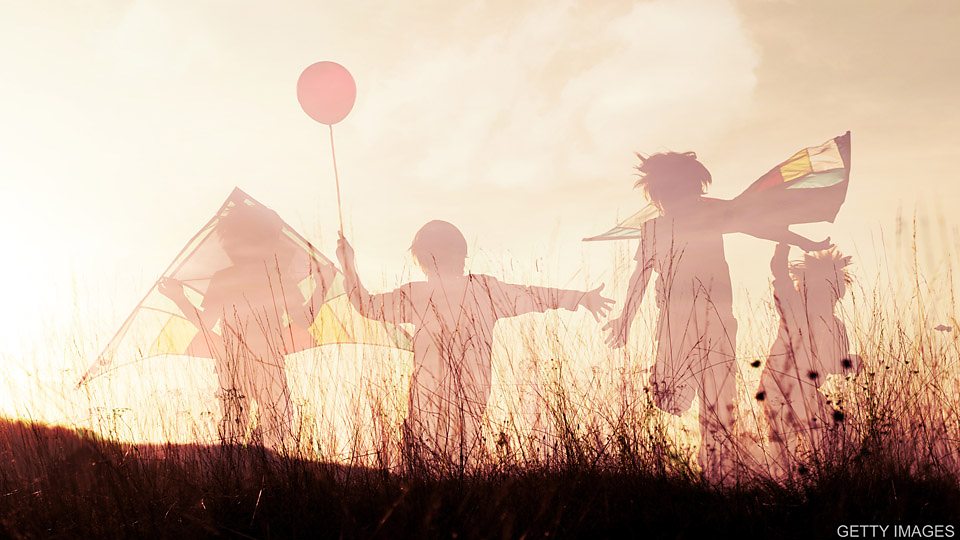随身英语
Are our early memories real? 我们早期的记忆是真的吗?

你最珍视的一段童年记忆是什么?一些研究的结果可能会让你感到惊讶:人们早期的记忆不一定准确。这究竟是为什么?本期 “随身英语” 节目探讨童年早期记忆的真实性。
词汇: memories 记忆
What’s the first thing you remember doing? It could be playing with your friends at school, or going to a birthday party and eating amazing cake. Most of us have a treasured early memory of our childhood, but can we really believe those vivid memories? Did those special moments really happen – or did we make them up?
It’s a strange concept to grasp, but according to research, about four out of 10 of us invent our first childhood memory. Rather than having experienced something, we could have fabricated a fake memory from videos or photos we’ve seen. We could have been influenced by a story recounted to us that spurs our minds on to adopt someone else’s memory as our own. What it means is that memories of our younger years, especially before the age of two, may be inaccurate, or entirely false.
But why don’t we have clear memories from that age? Well, our ability to retain memories from before the age of two isn’t great. While at that age we do have short-term memories, according to Catherine Loveday, an expert in autobiographical memory at the University of Westminster, the memories that infants make are not long-lasting. This is possibly due to the rapid creation of brain cells in our early years. Some scientists also believe that as we get older, our childhood memories fade and after the age of seven, we get some kind of ‘childhood amnesia’.
So why do we create fake memories? Some experts believe that there is a clear desire for a sense of self and having a cohesive story of our existence. Creating memories can fill in the gaps – giving us a more complete structure for our early lives. As we get older, we want to have a complete picture of our entire lives.
So, the next time someone says they have a clear memory from when they were one – or even before - just remember that while it could be true, there’s a chance they just invented it at some point in their lives.
词汇表
treasured 珍视的,珍重的
vivid 鲜明的,生动的
concept 概念
grasp 理解,领会
fabricate 编造
recount 叙述
spur on 促使,激励
adopt 采纳,采用
inaccurate 不准确的
clear 清晰的
retain 记住
short-term memory 短期记忆
autobiographical 自传体的,与个人生活事件紧密相关的
long-lasting 持久的
brain cell 脑细胞
fade 逐渐被遗忘
amnesia 失忆
cohesive 完整连贯的
测验与练习
1. 阅读课文并回答问题。
1. What’s the proportion of people who may have invented their first memory?
2. Why might we not be able to create long-lasting memories as a child?
3. By what age do some experts think we get ‘childhood amnesia’?
4. Why might someone want to create childhood memories?
5. What does the article suggest we should do when someone says they have a clear memory from when they were one?
2. 选择意思恰当的单词或词组来完成下列句子。
1. I love this toy. It was one of my most _______ possessions when I was a kid.
treasure treasured treasures treasuring
2. I think that we need to _______ new strategies for dealing with the problem.
recount fade adopt concept
3. Don’t make _______ stories! Tell the truth.
up out down in
4. All of my memories seem to have _______ over time.
faded grasped treasured adopted
5. Why don’t you _______ that story about your first bike to us?
recount clear amnesia retain
答案
1. 阅读课文并回答问题。
1. What’s the proportion of people who may have invented their first memory?
Around four in 10 of us may have faked our first memory.
2. Why might we not be able to create long-lasting memories as a child?
The rapid creation of brain cells being created in our early years could impact on our ability to create long-term memories.
3. By what age do some experts think we get ‘childhood amnesia’?
‘Childhood amnesia’ occurs by the age of seven.
4. Why might someone want to create childhood memories?
To give their life story a greater sense of cohesion.
5. What does the article suggest we should do when someone says they have a clear memory from when they were one?
Remember that while it could be true, there’s a chance they just invented it.
2. 选择意思恰当的单词或词组来完成下列句子。
1. I love this toy. It was one of my most treasured possessions when I was a kid.
2. I think that we need to adopt new strategies for dealing with the problem.
3. Don’t make up stories! Tell the truth.
4. All of my memories seem to have faded over time.
5. Why don’t you recount that story about your first bike to us?



